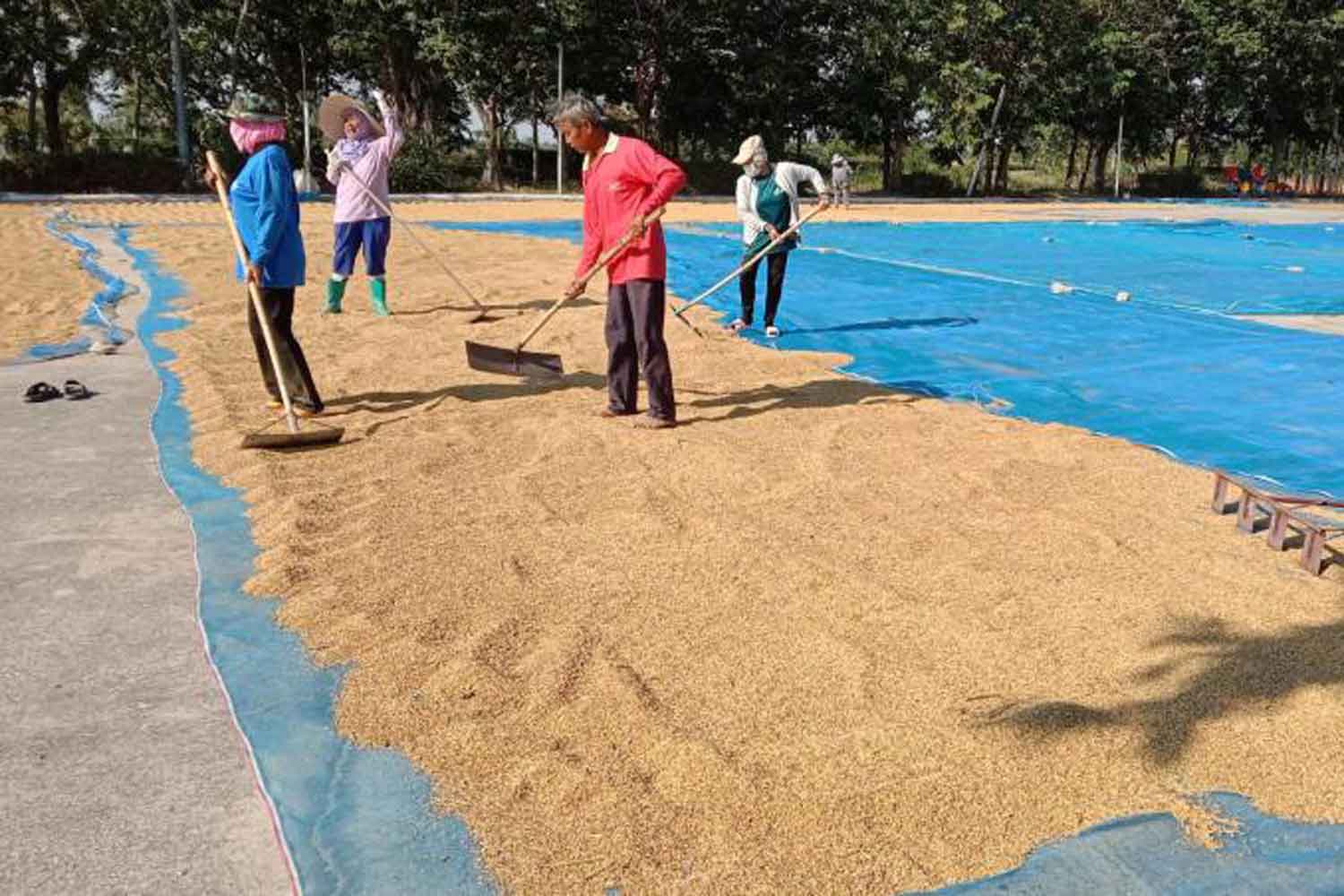
Election policies by various parties targeting farmers are aimed at creating short-term results and do not result in lasting income security, a recent forum in Bangkok was told.
Academics and farmers attending the forum on farmers' debts agreed that none of the campaign policies offered by parties contesting the upcoming general election would benefit agricultural workers in terms of long-term financial sustainability.
Prapas Pintobtang, an independent academic, said many farmers have a hard life and their average household debt now stands at 450,000 baht.
The debt is so large that few are able to pay it off during their lifetime, meaning it gets passed on to their children, he said.
Although the Farmer's Reconstruction and Development Fund (FRDF) has purchased some of these debts and restructured them with the aim of making the repayments more affordable, farmers still struggle to make good on them.
Of the 500,000 farmers that have registered for the debt restructuring scheme since 2006, only 2,500 were able to get out of debt and redeem their mortgaged land.
One solution would be to increase their income and reduce their farming expenses, Mr Prapas said, adding the agricultural sector must be revamped from top to bottom to augment productivity.
Sommarat Chantarat, a development economist at the Puey Ungphakorn Institute for Economic Research, said that 1 million farmers who borrowed from the Bank for Agriculture and Agricultural Cooperatives (BAAC) remain mired in a debt trap.
Technically, this means they keep borrowing until they hit the loan ceiling, at which point they are unable to obtain any more loans.
Banks often approve high-interest loans that are insufficient for farmers to invest in their crops. This may be a consequence of banks not having adequate financial records on which to base their loan-approval decisions, the academic said.
The problem has driven some farmers to borrow from predatory lenders, or loan sharks, she said.
"Their lives revolve around, and are dependent on, debt," Ms Sommarat said, adding farmers also have to contend with paying off debts for cars and motorcycles.
Some stand no chance of meeting the repayments while others are simply paying down the interest.
The economist said fairer lending conditions are needed, along with new measures to lift their income.
Farmers should consolidate into a network to give them more bargaining power, she said.
They also need to embrace more farming innovations to help them increase their yields and use diverse channels to market their crops.
The crops should be organic, as these require a lower investment cost in the long run, she added.
What parties should never do is offer farmers short-term policies, be they debt moratoriums, subsidies or price guarantee, she said.
If any assistance money is to be handed out, all farmers' groups should receive the varying amounts, she added.
"Such giveaways come with no conditions attached, which would otherwise compel farmers to improve their crop quality or productivity. It's telling the farmers they don't have to shape up," she said.
Somjit Kongthon, director of the Local Act Foundation, told the forum the election promise of a debt moratorium will not leave farmers any better off as the interest continues to be charged and the debt keeps on accruing.
Political parties must value farmers more, she said.
They produce food and should be able to acquire the support they need to be more self-reliant.
A farmer, who identified herself only as "A", called the debt suspension, welfare promises and assistance money a "one-plate" campaign policy.
No party has even touched on long-term, comprehensive policies that would strengthen farmers' income security, she said.
Ministries should integrate their work better to make a stronger farming sector, experts say.
The Agriculture Ministry should back farmers to grow better quality produce while the Industry Ministry must ensure the produce is processed and ready to be marketed within the country and overseas with the help of the Commerce Ministry, they added.
Also presented at the forum was data compiled by the Think Forward Center which showed that non-performing loans (NPLs) extended by the BAAC go up as borrowers grow older.
According to the centre, the BAAC's elderly borrowers number around 1.4 million.
Loans held by 179,421 of them have already been written off as NPLs.